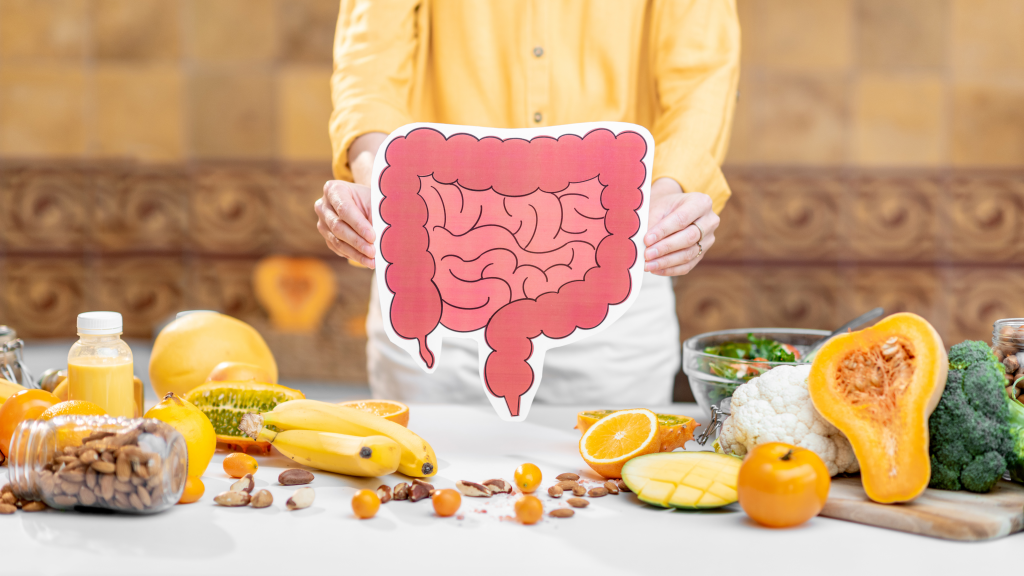Small Intestinal Bacterial Overgrowth (SIBO) is a gastrointestinal disorder that affects millions worldwide. Characterized by an excessive number of bacteria in the small intestine, SIBO can lead to a variety of symptoms and is often associated with other digestive issues. This article will explore what SIBO is, its symptoms and causes, and delve into natural treatment approaches, citing references from comprehensive reviews and holistic protocols.
What is SIBO?
SIBO stands for Small Intestinal Bacterial Overgrowth, a condition where the small intestine harbors an abnormally high number of bacteria. Unlike the large intestine, which contains a diverse and dense bacterial population, the small intestine typically has fewer bacteria due to its rapid transit time and the presence of stomach acid, bile, and digestive enzymes.
Symptoms of SIBO
SIBO can present with a range of symptoms, often overlapping with other gastrointestinal disorders, such as irritable bowel syndrome (IBS). Common symptoms include:
– Bloating
– Abdominal pain
– Diarrhea or constipation
– Gas and burping
– Nausea
– Fatigue
– Nutritional deficiencies
– Skin issues
– Brain fog
Causes of SIBO
Several factors can contribute to the development of SIBO:
– Chronic Stress: Stress can impair gut motility and immune function, creating an environment conducive to bacterial overgrowth.
– Digestive Disorders: Conditions like low stomach acid, poor bile function, and low pancreatic enzyme secretion can disrupt the balance of bacteria in the small intestine.
– Medications: Long-term use of antibiotics, proton pump inhibitors (PPIs), and other medications can alter gut flora and promote SIBO.
Natural Treatment Approaches for SIBO
Natural treatments for SIBO focus on dietary changes, lifestyle modifications, and the use of herbs and supplements to restore gut health and reduce bacterial overgrowth. Here are some evidence-based approaches:
- Dietary Changes
– Low FODMAP Diet: This diet restricts fermentable carbohydrates that feed SIBO bacteria. Foods high in FODMAPs (Fermentable Oligosaccharides, Disaccharides, Monosaccharides, and Polyols) are limited, which can help reduce symptoms like bloating and gas.
– Gluten and Dairy-Free Diet: Eliminating gluten and dairy can reduce inflammation and prevent symptoms exacerbated by these foods.
– Inclusion of Polyphenol Foods: Foods rich in polyphenols, such as berries, green tea, and dark chocolate, have prebiotic and antimicrobial properties, promoting the growth of beneficial gut bacteria.
- Lifestyle Modifications
– Stress Management: Techniques like deep breathing, meditation, and yoga can reduce stress levels, improving gut-brain axis communication and digestive function.
– Regular Exercise: Physical activity enhances gut motility and can help prevent SIBO by moving bacteria through the digestive tract more efficiently.
– Quality Sleep: Ensuring 7-8 hours of sleep per night supports overall health and can reduce inflammation associated with SIBO.
- Herbs and Supplements
– Antimicrobials: Natural antimicrobials like oregano oil, berberine, and allicin can help reduce bacterial overgrowth. These should be used under the guidance of a healthcare professional to avoid potential side effects.
– Probiotics: While probiotics can be beneficial, they should be chosen carefully. Certain strains like Saccharomyces boulardii have shown promise in alleviating SIBO symptoms by promoting a healthy gut flora balance.
– Digestive Enzymes: Supplements containing enzymes like amylase, protease, and lipase can aid digestion and improve nutrient absorption, which is often compromised in SIBO patients【9†source】.
- Biofilm Disruptors
– Apple Cider Vinegar and MCT Oil: These substances can help break down biofilms, which are protective layers that bacteria form to shield themselves from the immune system and antibiotics.
Conclusion
Managing SIBO naturally involves a multifaceted approach that addresses diet, lifestyle, and the use of targeted supplements. By understanding the underlying causes and implementing these natural strategies, individuals can reduce symptoms and improve their overall gut health.
Always consult with Pavo nutrition team for more information.
References
- IFM. SIBO Protocol. Retrieved from the comprehensive guide to understanding SIBO from a holistic perspective.
- Achufusi, T. G. O., Sharma, A., Zamora, E. A., & Manocha, D. (2020). Small Intestinal Bacterial Overgrowth: Comprehensive Review of Diagnosis, Prevention, and Treatment Methods. Cureus. Retrieved from [Comprehensive Review).

